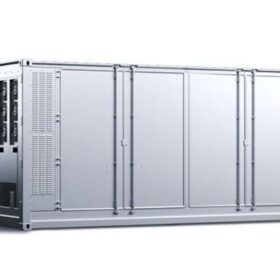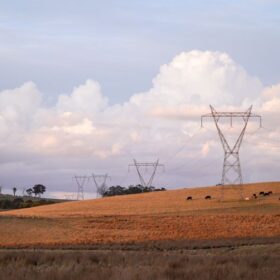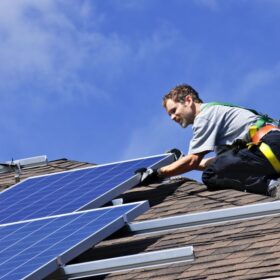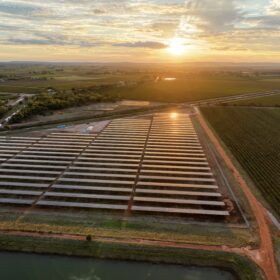FFI and DB have ambitious climate targets and are both moving as quickly as possible to remove diesel from their operations and replace it with green fuels and zero-emission solutions.
This agreement outlines a proposal for FFI to participate in DB’s research and development into a carbon free internal combustion engine, with the research having the potential to accelerate Fortescue’s Green Fleet rail delivery program.
The agreement follows a Memorandum of Understanding signed between FFI and DB, which centres on the companies’ intentions to work together collaboratively on decarbonisation technology opportunities.
Fortescue founder and Executive Chairman Dr Andrew Forrest AO said, “Fortescue is developing green hydrogen and green energy innovations and technology, with a specific focus on decarbonising hard-to-abate industries.
“We know that cutting edge technology and real-world solutions are key to addressing climate change which is why Fortescue is partnering with Deutsche Bahn, Europe’s leading mobility and logistics provider.
“Together FFI and DB will work to reduce global emissions given the urgency to find new ways to replace fossil fuels in the transport industry,” Dr Forrest said.
DB Board Member for Digitisation and Technology Dr. Daniela Gerd tom Markotten said, “We are saying goodbye to diesel and relying on the latest technologies, including the ammonia-hydrogen engine.
“This engine makes it possible to continue operating existing diesel vehicles without emissions. Our customers are already travelling by the most climate-friendly means of transport. By 2040, the railway will be completely climate-neutral.“
FFI & DB’s partnership builds on Fortescue’s announcement in March 2022 to develop with FFI and WAE the world’s first regenerating battery electric iron ore train, pre-feasibility studies are progressing, with delivery of the first Infinity Train scheduled to be operational by the end of 2027.
“We want to seize the opportunity to support the decarbonisation of the rail industry through developing multiple technologies,” Dr Forrest said.
“not every railway around the world will have as favourable topography as we do at our sites in Australia, therefore it makes sense to look at different technologies.”
Fortescue recently announced its world-leading decarbonisation strategy at the United Nations General Assembly in New York, aiming to eliminate fossil fuel use and achieve real zero terrestrial emissions (Scope 1 and 2) across its iron ore operations by 2030.
The investment is expected to eliminate Fortescue’s fossil fuel risk profile and enable it to supply its customers with a carbon free product, as well as prevent ~3 million tonnes per annum (mtpa) of carbon equivalent emissions from 2030. It will also save US$3 billion before 2030 and then US$818 million a year ongoingly post 2030.
Fortescue has already made significant effort in decarbonising its iron ore operations through its acquisition of Williams Advanced Engineering (WAE) in March 2022, and its partnership with Liebherr in June 2022 for the development and supply of a fleet of mining haul trucks powered by green hydrogen and renewable electricity.






By submitting this form you agree to pv magazine using your data for the purposes of publishing your comment.
Your personal data will only be disclosed or otherwise transmitted to third parties for the purposes of spam filtering or if this is necessary for technical maintenance of the website. Any other transfer to third parties will not take place unless this is justified on the basis of applicable data protection regulations or if pv magazine is legally obliged to do so.
You may revoke this consent at any time with effect for the future, in which case your personal data will be deleted immediately. Otherwise, your data will be deleted if pv magazine has processed your request or the purpose of data storage is fulfilled.
Further information on data privacy can be found in our Data Protection Policy.